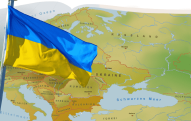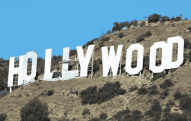Road and rail closures at least until Saturday
The fire in Grunewald in Berlin is still not completely extinguished two days after it broke out - the nearby city highway Avus and the railroad line remain closed. According to the fire department, a decision on when and whether the routes can be opened is not expected until around noon on Saturday at the earliest. It continues to burn on the blasting site, but only within a demarcated area. There, smaller fire spots would be extinguished. Currently, there are no large sources of fire in the forest outside the blasting site, he said.
In the night to Saturday there were no more explosions, it was further said. Remote-controlled robots to explore the exclusion zone had been withdrawn again during the night due to the more relaxed situation. The exploration of the area should be resumed on Saturday morning.
Although the flames around the site in Grunewald have been largely extinguished, the danger has not yet been eliminated, especially for emergency personnel. According to police, the ground at the site there was still as hot as 700 degrees in some places on Friday. To reduce the risk of further explosions of ammunition remnants, these areas must be cooled with water. Firefighters and a special company used a firefighting tank. Some storage sites of dangerous explosives have always been constantly cooled with water, nothing happened there.
Fire chief Karsten Homrighausen spoke on Friday of a lengthy process in which the temperature of the heated ammunition was also repeatedly measured with "remote thermometers". This is the only way the fire department can decide where cooling water, pumped via hoses from the Havel River three kilometers away, is needed.
On Thursday, the fire department had already imposed a safety radius of 1,000 meters around the site. Only when the cooling operations are successful and the danger decreases, the exclusion zone can be reduced to a radius of 600 meters and then the Avus and the railroad line can be reopened.
The rail line between the main stations in Berlin and Potsdam is closed due to the operation. S-Bahn trains as well as regional trains, ICs and ICEs are affected.
Fire chief Karsten Homrighausen stressed, "It's due to safety." In case of further explosions of ammunition remnants, material could be thrown far. The blast experts have identified three danger areas, there the fire department will specifically cool. In view of the complicated hazard response, the fire department is using state-of-the-art and expensive technology from a wide range of organizations.
The fire had broken out on the blast site on Thursday night. Tons of old shells, ammunition and confiscated fireworks were stored in buildings on the site. Explosions were heard, the fire spread throughout the day in the dry forest area.
Meanwhile, the cause of the fire in Grunewald is unclear. "That was a big topic here today: how could it come to this?" fire department spokesman Kirstein told broadcaster RBB on Thursday evening. Several buildings on the site had already been "in full fire" when the fire department arrived. Whether it was possibly arson, the state criminal investigation office must determine. For this purpose, there is also cooperation with the fire department and the blasting experts of the police.
According to the police, the large area of the blasting site stored around 30 tons of "explosive ordnance and ammunition" from World War II, as well as several hundred kilograms of fireworks that were confiscated on New Year's Eve, for example. At regular intervals, these stocks are blown up, most recently in March and April. For safety, the stored stocks are "permanently sprinkled." In addition, there is a fire protection concept, firebreaks and a fire alarm system.
The blasting site for the destruction of weapons and explosives has been in existence since 1950, and is now the responsibility of the police, who stressed that "considerations by the Berlin police to relocate the blasting site to another location have repeatedly occurred in the past, but there is simply no sufficiently large and approvable area available in the entire urban area of Berlin to implement this." Setting up a blasting site in Brandenburg would also be a problem because of the long distances involved, he said.
Photo by Sandy Millar
Â






 »
»